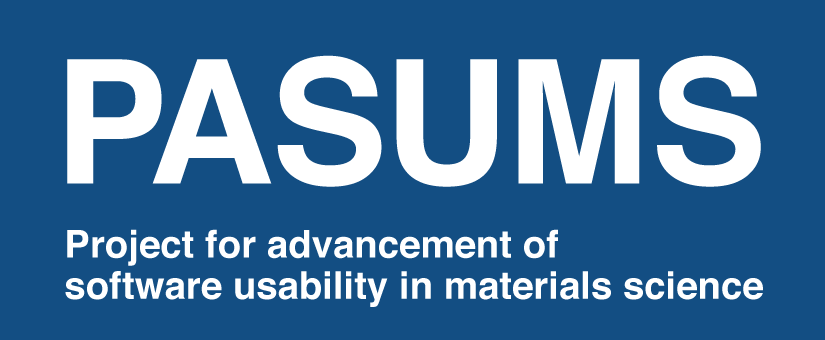What is H-wave?
H-wave is a program for performing unrestricted Hartree-Fock (UHF) approximation and random phase approximation (RPA) for itinerant electron systems. H-wave treats two types of UHF approximation: one is real-space and the other is wavenumber-space UHF methods using translational symmetry. In the wavenumber space UHF and RPA methods, the input file defining the one-body and two-body interactions is based on the Wannier90 format, and the program can be smoothly connected to RESPACK, a program for deriving effective models from first-principles calculations according to the Wannier90 format. In the future, we plan to add functions to analyze the linear Eliashberg equation, which is used for the random phase approximation and the estimation of the superconducting transition temperature.
License
Copyright (c) <2022-> The University of Tokyo. All rights reserved.
This software was developed with the support of “Project for advancement of software usability in materials science” of The Institute for Solid State Physics, The University of Tokyo.
The citation information of H-wave is shown below:
“H-wave — A Python package for the Hartree-Fock approximation and the random phase approximation”, Tatsumi Aoyama, Kazuyoshi Yoshimi, Kota Ido, Yuichi Motoyama, Taiki Kawamura, Takahiro Misawa, Takeo Kato, and Akito Kobayashi, Computer Physics Communications, 298, 109087 (2024).
Bibtex:
@article{AOYAMA2024109087,
title = {H-wave – A Python package for the Hartree-Fock approximation and the random phase approximation},
journal = {Computer Physics Communications},
volume = {298},
pages = {109087},
year = {2024},
issn = {0010-4655},
doi = {https://doi.org/10.1016/j.cpc.2024.109087},
url = {https://www.sciencedirect.com/science/article/pii/S0010465524000109},
author = {Tatsumi Aoyama and Kazuyoshi Yoshimi and Kota Ido and Yuichi Motoyama and Taiki Kawamura and Takahiro Misawa and Takeo Kato and Akito Kobayashi}
}
Core Developers
H-wave has been developed by following members.
- v0.1-
- Main developers
- Tatsumi Aoyama (The Institute for Solid State Physics, The University of Tokyo)
- Kazuyoshi Yoshimi (The Institute for Solid State Physics, The University of Tokyo)
- Yuichi Motoyama (The Institute for Solid State Physics, The University of Tokyo)
- Kota Ido (The Institute for Solid State Physics, The University of Tokyo)
- Takahiro Misawa (Beijing Academy of Quantum Information Sciences (BAQIS))
- Taiki Kawamura (Nagoya University)
- Akito Kobayashi (Nagoya University)
- Project coordinator
- Takeo Kato (The Institute for Solid State Physics, The University of Tokyo)
- Main developers

